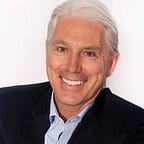Why “We’re Building X but Better” Isn’t Good Enough in SaaS.
In the fiercely competitive landscape of Software as a Service (SaaS), the notion of “building X but better” has become a common mantra among companies striving to carve out their niche. While the desire to outperform competitors is understandable, this approach often falls short in delivering sustainable success. What SaaS companies truly need is a strategic shift towards differentiation — a relentless pursuit of distinctiveness rooted in a deep understanding of customer needs and preferences.
Rethinking Strategy for Differentiation and Success
At the core of a differentiation strategy lies a fundamental truth: customers are the focal point. Unlike generic attempts to replicate existing solutions with minor improvements, true differentiation requires an unwavering commitment to understanding and serving customers in a way that sets the product apart in the market.
Central to this approach is the recognition that differentiation isn’t merely about being “better” than the competition; it’s about being different in ways that resonate with customers. This entails a continual effort to delve deeper into the holistic understanding of customer segments, uncovering unmet needs, pain points, and desires that existing solutions fail to address adequately.
Differentiation is holistic
Moreover, differentiation isn’t confined to product features alone; it encompasses the entire brand experience. From user interface design to customer support, every touchpoint plays a crucial role in shaping the perceived value of the product. Therefore, building a truly differentiated SaaS offering requires a holistic approach that transcends product functionality and extends to brand identity and customer engagement.
One of the key benefits of differentiation is the ability to command a higher price premium. When a product is differentiated along dimensions that customers genuinely care about, they are willing to pay a premium for the unique value proposition it offers. This not only enhances revenue potential but also fosters customer loyalty and reduces susceptibility to price-based competition.
However, despite its evident advantages, the pursuit of true differentiation remains elusive for many SaaS companies. All too often, companies approach product development from a competitive standpoint, focusing on building features and functionalities to match or surpass existing solutions in the market. While this reactive approach may yield short-term gains, it fails to address the underlying need for genuine innovation and customer-centricity.
Start with the customer
Instead, SaaS companies should adopt a proactive approach that starts with the customer. By deeply understanding the needs, pain points, and aspirations of target customer segments, companies can identify opportunities to innovate and differentiate their offerings in meaningful ways. This entails a shift from a product-centric mindset to a customer-centric one, where every decision is guided by the overarching goal of delivering exceptional value and experiences to customers.
Moreover, choosing a different “place to play” — whether it’s targeting underserved market segments or addressing unmet needs within existing markets — provides SaaS companies with a unique opportunity to build capabilities and establish a competitive advantage. By focusing on areas where competitors are not adequately addressing customer needs, companies can position themselves as pioneers and market leaders in their chosen space.
While the temptation to emulate existing solutions with minor improvements may be strong, SaaS companies must resist the allure of mediocrity. True success in the SaaS industry lies not in striving to be “better” than the competition but in being fundamentally different in ways that matter to customers. By embracing a differentiation strategy rooted in customer-centricity, innovation, and brand building, SaaS companies can unlock new avenues for growth, profitability, and long-term success in an increasingly crowded market.
Thanks for reading. I’m John McAuliffe and I help companies accelerate growth more consistently and with greater predictability.
I am a learner. I find myself constantly reading on a variety of topics with an insatiable appetite for continuous learning. My thoughts on business have been influenced by many. You may feel a bit of déjà vu in reading some of my thoughts because of this. When it comes to strategy and business management systems I follow the likes of Jim Collins, Roger Martin, Gino Wickman, Verne Harnish amongst others. On consumer insights, marketing and sales I am influenced by the likes of Adele Revella, John McMahon, Geoffrey Moore and many others. Thanks for reading.
